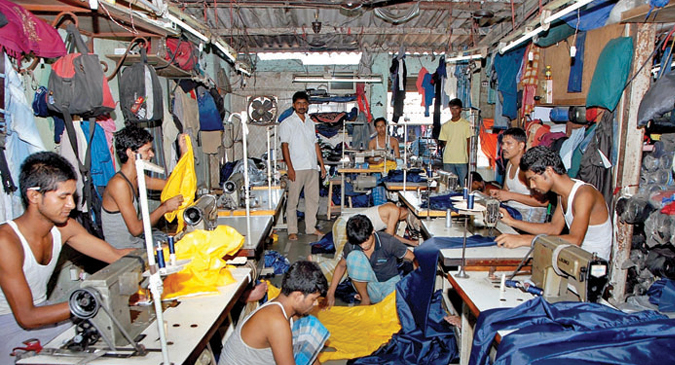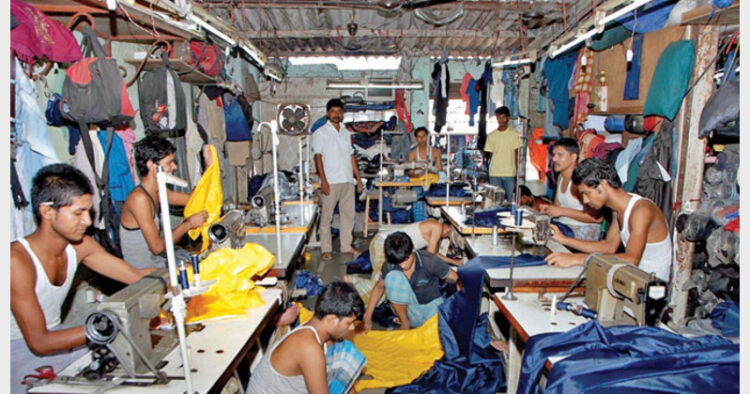The acknowledgment by Finance Minister that 50 per cent of the GDP comes through the sweat and toil of 42 crore workers in unorganised sector recognises the human element in improving the GDP
Pawan Kumar
What satisfies me more in the Budget 2019-20 proposals is the acknowledgment by Union Finance Minister Shri Piyush Goel about the contribution of workers in GDP. It is the demand which is being pressed upon by Bharatiya Mazdoor Sangh (BMS) for a long time. The Finance Minister accepted that 50 per cent of the GDP comes through the sweat and toil of the 42 crore workers in the unorganised sector. This acknowledgement recognises the human element in improving the GDP. The Finance Minister has also enumerated many other pro-worker measures that have already been taken by the Government. We hope the pro-worker vision forms an integral part of the future road map for development in the country.

Overall, the proposal to double the Income Tax exemption limit up to Rs 5 lakh is indeed a big relief to the salaried class, which constitutes a major part of the middle class in the country. It too has been a long pending demand of the BMS. Apart from it, the TDS threshold on interests enhanced from Rs.10,000 to Rs. 40,000 is highly beneficial to the old age persons, who depend mainly on the saving deposits. The Rs 3,000 pension proposed for unorganised sector workers aged above 60 years with a monthly income of below Rs.15,000 with payment of Rs 55 to 100 for beginners is also a welcome move. We are of the opinion that this benefit should be extended to the EPF pensioners also forthwith. Hike in pay to the military personals is also a welcome move.
Another demand of the BMS to create a separate Ministry or at least a separate department for the fisheries has also been materialised in this budget. The Government has proposed a separate Department for it. Today, fisheries constitute only one division in Department of Animal Husbandry, Dairy and Fisheries, which is again only one department among three departments functioning under the Ministry of Agriculture.
Also, setting up of a welfare board for de-notified, nomadic and semi-nomadic communities is a good initiative. This section of the society normally remains invisible to the policymakers. Single window clearance for film shooting is also expected to assist the employees in the film industry in removing the uncertainties in their employment. Income support of Rs 6,000 to be given to farmers below 5 acres through DBT is a relief to the marginal farmers in distress. This benefit should also be extended to farm workers and landless labourers in the agriculture sector.
We welcome the budget as it has taken care of all sections of the society. Several steps have been taken to boost MSME and to empower traders. the increased exemption limit of Gst coverage is a welcome step” —Sudarshan Sareen, president, AICOSMIA Not only this budget, during the last four and a half years, the BMS has been successful in ensuring that the genuine demands of the workers are accepted. Whenever necessary, the BMS never hesitated to organise demonstrations and rallies. We also held a series of meetings with the Group of Ministers and other officials to press upon our demands. As a result, the calculation ceiling in Payment of Bonus Act-1965 was increased from Rs 3500 to Rs 7000 per month. The eligibility ceiling was also increased from Rs 10,000 per month to Rs 21,000 per month.
In Gratuity Act, 1972 also the payment ceiling has been enhanced from Rs 10 lakh to Rs 20 lakh. The minimum wage in respect of scheduled employments comes under the purview of the Government of India. It has been increased by minimum 42 to 47 per cent. If we go into details, the wage for unskilled agriculture worker from Rs 226 to 333 under Area A, Rs 206 to 303 under Area B and Rs 204 to Rs 300 under Area C. For Building construction, construction, maintenance of roads the wage for unskilled worker was increased from Rs 368 to Rs 523 (Area-A), from Rs. 307 to Rs.437 (Area-B) and from Rs. 246 to 350 (Area-C).
Under the Maternity Act, 1961, the maternity leave benefit for women was increased from 12 weeks to 26 weeks for two surviving children. Under the ESI Act, 1948 the eligibility coverage ceiling was enhanced from Rs 15,000 to Rs 21,000 per month. Also, the benefit of two dispensaries (one for working place and one for the native place) for each insured person has been ensured.
Under the EPF & MP Act 1952, the minimum guaranteed pension of Rs 1,000 has been ensured per month. Now digital life certificate can be submitted from any common service centre in the country. Similarly, now minimum assured insurance of Rs 2.5 lakh and maximum benefit of Rs 6 lakh under the EDLI scheme of EPFO has been ensured in case of death of a worker while in service. Decentralisation of PF offices in every revenue district is also a big achievement. Date of birth and personal data updation has been digitalised in the EPFO and correction in name and date of birth has been allowed to avoid harassment to get the pension.
The honorarium of Anganwadi workers has been raised from Rs 3000 to Rs 4500. Also the honorarium of mini Anganwadi was raised from Rs 2,250 to Rs 3,500. Honorarium in respect of helper has been raised from Rs 1,500 to Rs 2,200. Not only this, in case of death Rs 2 lakh insurance coverage has been provided with free of cost. For disability, insurance coverage of Rs 1 lakh has been provided. For Asha workers, the performance-based incentive has been increased from Rs 1,000 to Rs 2,000 for routine and recurring type of jobs. In case of death, Rs 2 lakh coverage has been provided to the Asha workers. In case of disability of permanent nature, Rs 1 lakh insurance coverage has been provided. Equally, for Mid Day Meals Scheme workers, there is increase by Rs 2/-per day per child for cooking charges.
The pay of Gramin Dock Sevak has been revised. For it, the Kamalesh Chandra Report has been implemented. Their wage has been increased four times. Further, the rate of increment has also been raised to 3 per cent. Ex-gratia and gratuity for them have been increased from Rs 60,000 to Rs 5 lakh. Also, the GDS Group Insurance has been raised from Rs 50,000 to Rs 5 lakh.
With the enactment of Wage and Social Security Codes, the minimum wages and social security is to be guaranteed to the last worker in the country. The unorganised workers’ social security board, which was functionless since 2011, has been revived. The ILO Core convention on Child Labour (182) has also been ratified by the Government of India. Under portability of labour laws, the benefits have been made portable throughout the country. The Ayushman Bharat Yojana covers 10 crore poor and vulnerable families, which includes the unorganised sector workers to the extent of Rs 5 lakh per annum.
(The writer is North Central Zone organising secretary of the Bharatiya Mazdoor Sangh and played an important role in various negotiations with the Government of India on various issues concerning the labour)














Comments